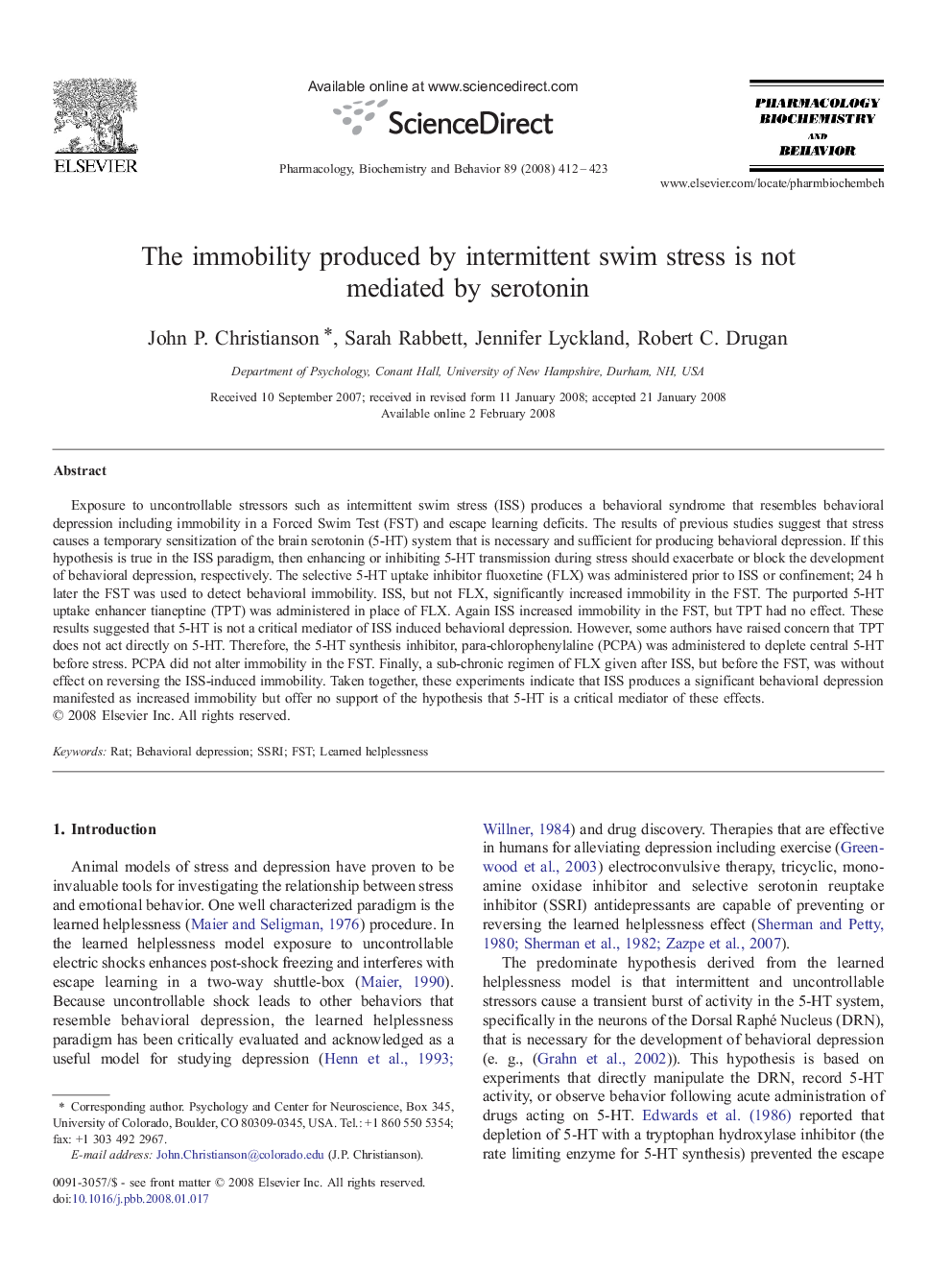| Article ID | Journal | Published Year | Pages | File Type |
|---|---|---|---|---|
| 2013861 | Pharmacology Biochemistry and Behavior | 2008 | 12 Pages |
Exposure to uncontrollable stressors such as intermittent swim stress (ISS) produces a behavioral syndrome that resembles behavioral depression including immobility in a Forced Swim Test (FST) and escape learning deficits. The results of previous studies suggest that stress causes a temporary sensitization of the brain serotonin (5-HT) system that is necessary and sufficient for producing behavioral depression. If this hypothesis is true in the ISS paradigm, then enhancing or inhibiting 5-HT transmission during stress should exacerbate or block the development of behavioral depression, respectively. The selective 5-HT uptake inhibitor fluoxetine (FLX) was administered prior to ISS or confinement; 24 h later the FST was used to detect behavioral immobility. ISS, but not FLX, significantly increased immobility in the FST. The purported 5-HT uptake enhancer tianeptine (TPT) was administered in place of FLX. Again ISS increased immobility in the FST, but TPT had no effect. These results suggested that 5-HT is not a critical mediator of ISS induced behavioral depression. However, some authors have raised concern that TPT does not act directly on 5-HT. Therefore, the 5-HT synthesis inhibitor, para-chlorophenylaline (PCPA) was administered to deplete central 5-HT before stress. PCPA did not alter immobility in the FST. Finally, a sub-chronic regimen of FLX given after ISS, but before the FST, was without effect on reversing the ISS-induced immobility. Taken together, these experiments indicate that ISS produces a significant behavioral depression manifested as increased immobility but offer no support of the hypothesis that 5-HT is a critical mediator of these effects.
